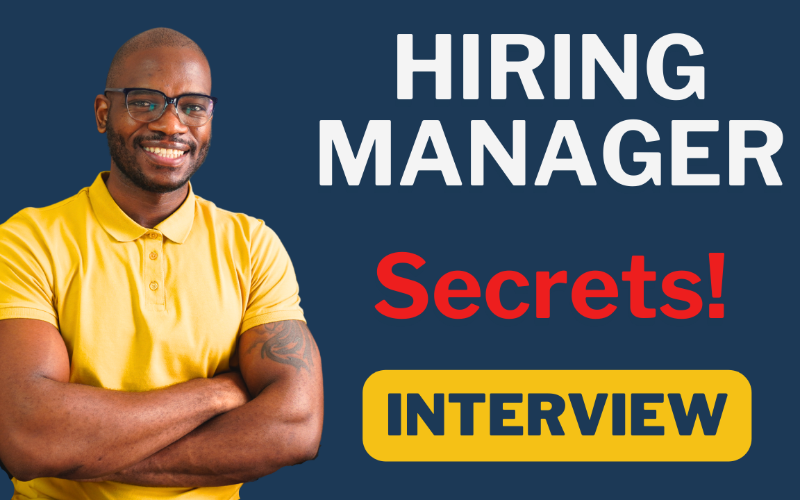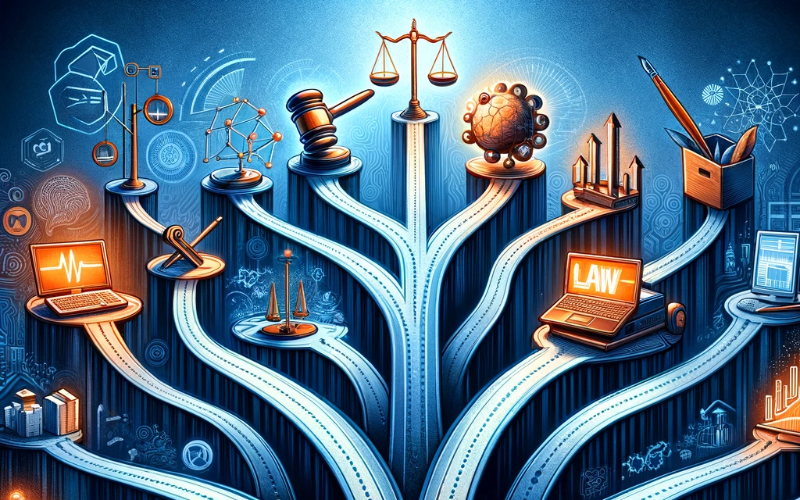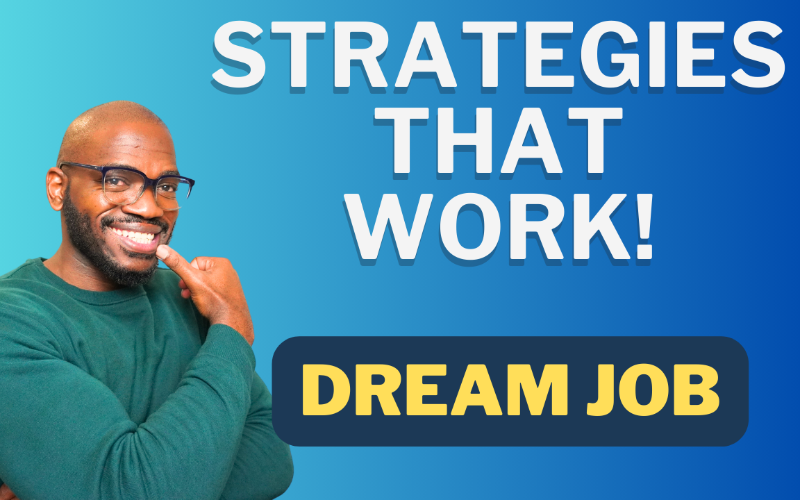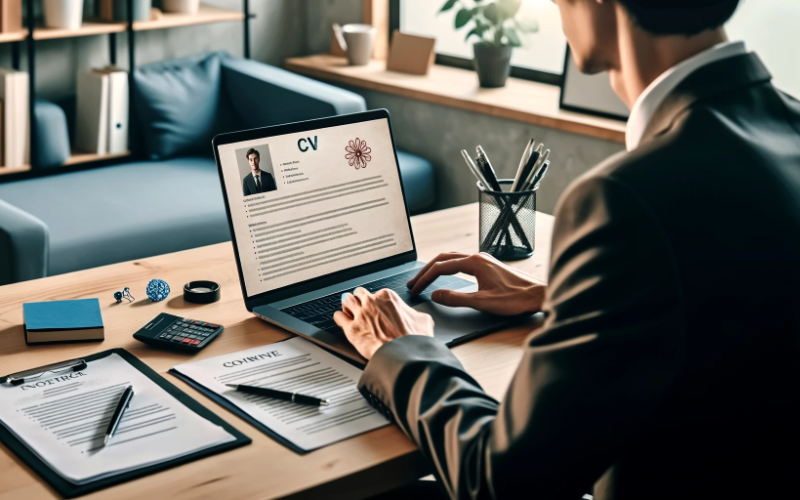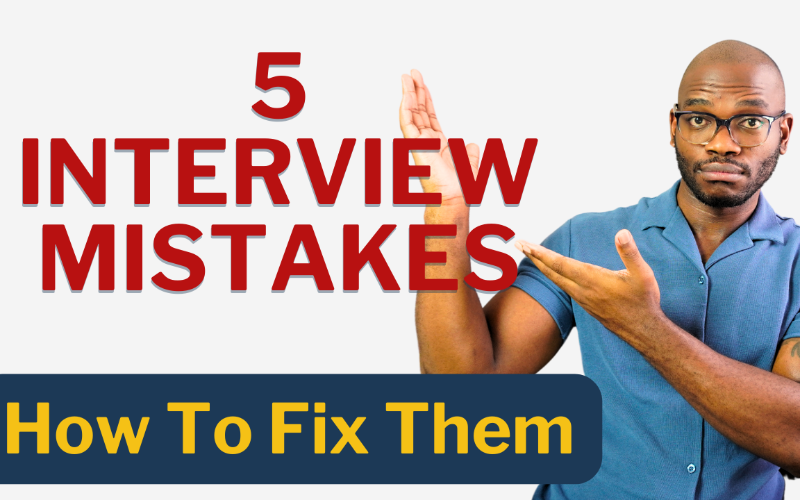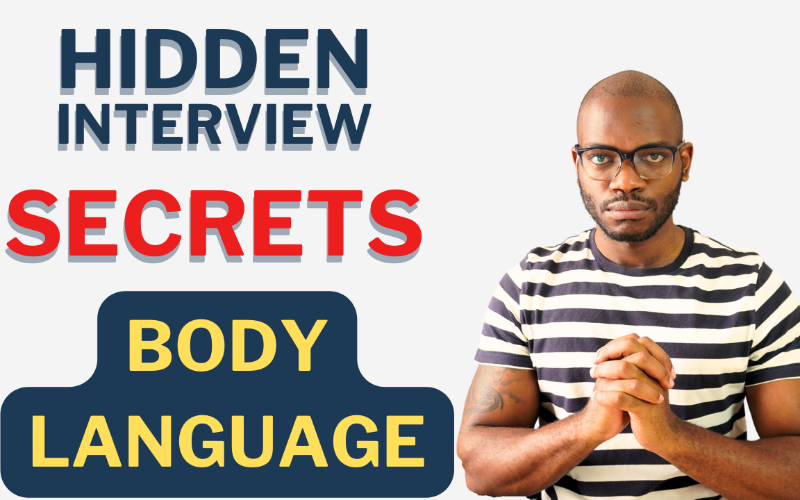Welcome to "Unlocking Success: Proven Strategies to Ace Your Next Job Interview." In today's competitive job market, excelling in interviews is crucial for landing your dream job. This comprehensive guide is designed to provide you with actionable strategies, expert insights, and practical tips to ensure you stand out during the interview process.
Job interviews serve as a critical gateway to career opportunities, allowing employers to assess your skills, personality, and suitability for the role. To navigate this pivotal stage successfully, understanding and implementing proven interview strategies is essential. Let's embark on this journey together and unlock the secrets to interview success.
Understanding the Interview Process
Before diving into interview strategies, it's crucial to comprehend the interview process. Job interviews come in various forms, including phone, video, and in-person interviews. Each type has its nuances, and being prepared for all scenarios is key.
What to Expect in a Typical Job Interview
-
Greetings and Introductions: Expect a warm welcome, often followed by a brief introduction to the company and the interview process.
-
Questions about Your Background: Anticipate questions about your education, work experience, and career goals.
-
Behavioral and Situational Questions: Employers may delve into your past experiences using behavioral and situational questions to assess your problem-solving skills and decision-making abilities.
-
Time for Your Questions: Almost every interview concludes with an opportunity for you to ask questions. Prepare insightful inquiries to demonstrate your genuine interest in the position.
Different Types of Interviews and Preparation Tips
-
Phone Interviews:
-
Practice clear and concise responses due to the lack of visual cues.
-
Choose a quiet environment with no distractions.
-
Have your resume, job description, and any prepared notes handy.
-
-
Video Interviews:
-
Test your equipment and familiarize yourself with the video platform beforehand.
-
Dress professionally as if attending an in-person interview.
-
Maintain eye contact with the camera to establish a connection.
-
-
In-Person Interviews:
-
Dress professionally based on the company's dress code.
-
Bring multiple copies of your resume and a notepad for jotting down notes.
-
Plan your route to the interview location, considering traffic and parking.
-
Understanding the nuances of each interview type allows you to tailor your preparation effectively. Now, let's delve into crafting a compelling elevator pitch to leave a lasting impression.
Preparing Your Elevator Pitch

Crafting a compelling elevator pitch is your chance to make a memorable first impression. This concise introduction should highlight your key strengths, achievements, and career goals in a way that captivates the interviewer's attention.
Elements of a Powerful Elevator Pitch
-
Introduction:
-
Begin with a confident and friendly greeting.
-
State your name and express your enthusiasm for the opportunity.
-
-
Professional Background:
-
Provide a brief overview of your professional background.
-
Highlight relevant skills and experiences that align with the job.
-
-
Key Achievements:
-
Showcase specific accomplishments that demonstrate your capabilities.
-
Quantify achievements whenever possible to add impact.
-
-
Career Goals:
-
Convey your career aspirations and how they align with the company's mission.
-
Demonstrate a genuine interest in contributing to the organization's success.
-
Tailoring Your Elevator Pitch
-
Research the Company:
-
Mention specific aspects of the company that resonate with you.
-
Connect your skills and goals to the company's values and objectives.
-
-
Adapt to the Situation:
-
Customize your pitch based on the type of interview and the individuals present.
-
Be prepared to adjust your emphasis depending on the interviewer's interests.
-
Example Elevator Pitch:
"Hello, my name is [Your Name]. With a background in [Your Field], I've successfully [Highlight Key Achievement]. I'm passionate about [Specific Aspect of Your Field], and I'm excited about the opportunity to contribute my skills to [Company Name]. Your commitment to [Company Value] aligns with my own values, and I believe my experience in [Your Expertise] makes me a valuable asset to your team."
Crafting a compelling elevator pitch sets a positive tone for the interview. Now, let's explore the importance of researching the company and interviewer to further enhance your preparation.
Researching the Company and Interviewer
Thorough research about the company and the interviewer is a cornerstone of successful interview preparation. Demonstrating knowledge about the organization not only showcases your genuine interest but also positions you as a candidate who understands the company's values and objectives.
Why Company Research Matters
-
Showcases Genuine Interest:
-
Interviewers appreciate candidates who take the time to understand the company's history, mission, and values.
-
It demonstrates your enthusiasm for the position and the organization.
-
-
Tailors Your Responses:
-
Understanding the company's culture allows you to tailor your responses to align with their expectations.
-
You can highlight experiences and skills that resonate with the company's needs.
-
-
Helps Formulate Informed Questions:
-
In-depth company knowledge enables you to ask insightful questions during the interview.
-
It reinforces your genuine curiosity about the role and the company's future.
-
Tips for Effective Company Research
-
Explore the Company Website:
-
Study the company's 'About Us,' mission, and values sections.
-
Familiarize yourself with recent news, blog posts, or press releases.
-
-
Check Social Media Platforms:
-
Review the company's LinkedIn, Twitter, and other social media profiles.
-
Take note of any recent achievements, events, or announcements.
-
-
Utilize Employee Reviews and Insights:
-
Websites like Glassdoor provide insights into company culture, employee experiences, and interview processes.
-
Consider the overall sentiment and look for recurring themes.
-
Researching the Interviewer
-
LinkedIn Profile:
-
Explore the interviewer's LinkedIn profile to understand their professional background.
-
Identify shared connections or common interests to build rapport.
-
-
Recent Publications or Presentations:
-
If the interviewer has publications or presentations, familiarize yourself with their work.
-
This demonstrates a proactive approach and genuine interest in their expertise.
-
Case Study: The Power of Company Research
By investing time in thorough research, you position yourself as a candidate who understands the company's mission and is prepared to contribute meaningfully. Now, let's explore how to navigate common interview questions effectively.
Common Interview Questions and How to Answer Them
Navigating common interview questions with confidence is a crucial aspect of interview success. Employers often rely on these questions to assess your communication skills, problem-solving abilities, and cultural fit within the organization.
1. "Tell Me About Yourself"
This question provides an opportunity to present a concise yet comprehensive overview of your professional journey. Focus on your relevant experiences, skills, and career trajectory. Keep it engaging and align it with the role you're applying for.
Example Response:
"Certainly! I'm [Your Name], and I bring [X years] of experience in [Your Field]. In my previous role at [Previous Company], I successfully [Highlight Key Achievement]. I'm excited about this opportunity at [Current Company] because [Reasons Why You're Interested]."
2. "What Are Your Strengths and Weaknesses?"
Strengths:
-
Highlight strengths relevant to the job.
-
Provide examples to support your strengths.
Example Response:
"One of my key strengths is [Specific Skill]. In my previous role, I applied this skill to [Highlight Achievement]. I believe it aligns well with the requirements of this position."
Weaknesses:
-
Choose a genuine weakness.
-
Demonstrate self-awareness and a proactive approach to improvement.
Example Response:
"I used to struggle with [Weakness], but I've been actively working on it by [Steps Taken]. This experience has taught me [Valuable Lesson] and has made me more [Positive Attribute]."
3. "Why Should We Hire You?"
-
Emphasize your unique skills and experiences.
-
Showcase how your contributions align with the company's needs.
Example Response: "I believe my combination of [Skills], experience in [Industry/Role], and my passion for [Specific Aspect of the Job] make me an ideal candidate. I'm confident that my contributions will positively impact [Company Goals]."
4. "Where Do You See Yourself in 5 Years?"
-
Align your response with the company's growth.
-
Showcase your commitment to professional development.
Example Response:
"In five years, I see myself contributing significantly to [Company Goals]. I'm eager to take on additional responsibilities and grow with the organization. I believe that as the company succeeds, so will I."
5. "Tell Me About a Challenge You Overcame"
-
Choose a relevant professional challenge.
-
Highlight your problem-solving skills and resilience.
Example Response:
"In my previous role, we faced [Challenge], and I played a key role in [Solution]. This experience not only improved [Specific Skill], but it also strengthened my ability to handle complex situations effectively."
Navigating these questions with thoughtful and well-prepared responses enhances your chances of making a positive impression. Now, let's explore behavioral interview techniques to further showcase your skills.
Here's a comprehensive guide on common interview questions: Top 10 Interview Questions and How to Answer Them Successfully
Behavioral Interview Techniques
Behavioral interview questions are designed to assess how candidates handled situations in the past, as they believe past behavior is a good indicator of future performance. Mastering these questions involves using the STAR method (Situation, Task, Action, Result) to structure your responses.
Understanding the STAR Method
-
Situation:
-
Describe the context or situation you were in.
-
Keep it concise and focused on the relevant details.
-
-
Task:
-
Outline the task or challenge you were faced with.
-
Specify your role and responsibilities in the situation.
-
-
Action:
-
Detail the actions you took to address the situation.
-
Emphasize your decision-making process and problem-solving skills.
-
-
Result:
-
Conclude with the positive outcome or results of your actions.
-
Highlight any lessons learned or skills developed.
-
Example Behavioral Interview Question and Response
Question: "Tell me about a time you had to meet a tight deadline."
Response using STAR Method:
"In my previous role, we had a client presentation with a tight deadline. (Situation) The challenge was to create a comprehensive report in just two days. (Task) As the lead on the project, my responsibility was to coordinate with the team and ensure all necessary information was gathered. (Action) I organized a tight schedule, delegated tasks efficiently, and stayed late to review and finalize the report. I also communicated transparently with the client about the tight timeline. (Result) Despite the challenge, we successfully delivered the report on time, impressing the client and strengthening our team's collaboration skills."
Common Behavioral Interview Questions
-
"Describe a situation where you had to deal with a difficult team member."
-
"Share an example of when you had to adapt to a significant change at work."
-
"Tell me about a time you had to handle a dissatisfied client or customer."
-
"Describe a situation where you demonstrated leadership skills."
-
"Share an example of when you had to resolve a conflict within your team."
Benefits of Using Behavioral Techniques
-
Concrete Examples: Provide tangible evidence of your abilities.
-
Structured Responses: Ensures clarity and organization in your storytelling.
-
Demonstrates Skills: Illustrates your problem-solving, communication, and leadership skills.
Mastering behavioral interview techniques enhances your ability to showcase your skills and experiences in a structured and compelling manner. Moving forward, let's explore the importance of dressing for success in interviews.
Here's a comprehensive guide on answering behavioral questions: How to Prepare for Behavioral Job Interviews
Dressing for Success

Dressing appropriately for an interview is a key aspect of making a positive first impression. Your attire not only reflects professionalism but also communicates your respect for the opportunity. Here's a guide to dressing for success in different interview scenarios:
Dressing Guidelines for Various Interview Settings
-
In-Person Interviews:
-
Men:
-
Wear a tailored suit in a neutral color (black, navy, or gray).
-
Pair it with a pressed dress shirt and a conservative tie.
-
Choose polished dress shoes and ensure they match your belt.
-
-
Women:
-
Opt for a tailored suit or a professional dress with a blazer.
-
Wear closed-toe heels or flats, and keep accessories minimal.
-
Choose neutral colors for a classic and polished look.
-
-
-
Video Interviews:
-
Dress professionally from head to toe, as unexpected circumstances may require standing.
-
Avoid overly bright colors or distracting patterns.
-
Ensure a clean and clutter-free background.
-
-
Casual or Tech Industry Interviews:
-
Research the company's dress code beforehand.
-
Aim for a polished version of the company's typical attire.
-
Avoid overly casual clothing, such as jeans or sneakers.
-
Importance of Dressing Well
-
First Impressions Matter:
-
Your appearance is the first thing an interviewer notices.
-
Dressing professionally conveys seriousness and respect for the opportunity.
-
-
Confidence Boost:
-
Wearing professional attire can boost your confidence.
-
Feeling well-dressed often translates to a more positive and assertive demeanor.
-
-
Respect for the Company Culture:
-
Adhering to the company's expected dress code shows an understanding of and respect for its culture.
-
It indicates your willingness to align with the organization's values.
-
Dos and Don'ts
Dos:
-
Ensure your clothes are clean, ironed, and in good condition.
-
Choose conservative and neutral colors for a timeless and professional appearance.
-
Pay attention to personal grooming, including clean and trimmed nails and tidy hair.
Don'ts:
-
Avoid overly casual clothing or outfits that may distract from your qualifications.
-
Steer clear of strong perfumes or colognes, as they can be overpowering.
-
Minimize accessories to maintain a polished and professional look.
By dressing for success, you set a positive tone for the interview and convey your professionalism to the interviewer. Now, let's explore the nuances of mastering non-verbal communication during interviews.
Mastering Non-Verbal Communication
Effective non-verbal communication is a powerful tool during interviews. Your body language, facial expressions, and overall demeanor can influence the interviewer's perception of your confidence, enthusiasm, and professionalism. Let's delve into key aspects of mastering non-verbal communication:
1. Maintaining Eye Contact
-
Importance:
-
Establishes a connection and portrays confidence.
-
Indicates active listening and engagement.
-
-
Tips:
-
Maintain steady eye contact without staring.
-
Look away occasionally to avoid appearing intense.
-
2. Posture and Body Language
-
Importance:
-
Reflects confidence and professionalism.
-
Conveys interest and attentiveness.
-
-
Tips:
-
Sit up straight with your shoulders relaxed.
-
Avoid crossing your arms, as it can be perceived as defensive.
-
3. Facial Expressions
-
Importance:
-
Expresses emotions and enthusiasm.
-
Contributes to a positive and engaging conversation.
-
-
Tips:
-
Smile naturally to convey warmth.
-
Adjust your facial expressions to match the tone of the conversation.
-
4. Hand Gestures
-
Importance:
-
Enhances communication and emphasizes points.
-
Adds a dynamic and engaging element to your presence.
-
-
Tips:
-
Use gestures purposefully and sparingly.
-
Avoid overly dramatic or distracting movements.
-
5. Active Listening
-
Importance:
-
Demonstrates your attentiveness and respect.
-
Allows you to respond thoughtfully to questions.
-
-
Tips:
-
Nod occasionally to show understanding.
-
Avoid interrupting; wait for the interviewer to finish speaking.
-
6. Tone of Voice
-
Importance:
-
Conveys your personality and enthusiasm.
-
Affects how your responses are perceived.
-
-
Tips:
-
Speak clearly and at a moderate pace.
-
Vary your tone to emphasize key points.
-
Non-Verbal Communication Checklist:
-
Mirror the Interviewer's Energy: Adapt your non-verbal cues to match the interviewer's demeanor.
-
Practice in Front of a Mirror: Assess your body language and make adjustments as needed.
-
Record a Mock Interview: Review the recording to identify any unintentional non-verbal signals.
Mastering non-verbal communication enhances the overall impression you leave during an interview. Next, let's explore strategies for handling difficult questions and challenging situations with confidence.
Additional resources:
Handling Difficult Questions and Situations

Encountering challenging questions or situations during an interview is inevitable. How you navigate these moments can significantly impact the interviewer's perception of your resilience, problem-solving skills, and overall suitability for the role. Let's explore effective strategies for handling difficult questions and situations with confidence:
1. Addressing Gaps in Your Employment History
-
Acknowledge and Redirect:
-
Acknowledge the gap briefly and redirect the focus to your skills and experiences.
-
Emphasize any professional development or freelance work during the gap.
-
2. Explaining a Job Termination
-
Be Honest and Positive:
-
Be honest about the circumstances without placing blame.
-
Highlight the lessons learned and how you've grown from the experience.
-
3. Responding to a Question You're Unsure About
-
Stay Calm and Thoughtful:
-
If faced with an unfamiliar question, take a moment to gather your thoughts.
-
Express your willingness to learn and provide a thoughtful response.
-
4. Handling Behavioral Questions About Conflict
-
Focus on Resolution:
-
Share a situation where conflict arose but emphasize the resolution.
-
Highlight your ability to navigate challenges collaboratively.
-
5. Discussing Salary Expectations
-
Research Salary Ranges:
-
Research industry-standard salary ranges for the position.
-
Provide a range based on your research and expectations.
-
6. Addressing a Lack of Specific Experience
-
Highlight Transferable Skills:
-
Acknowledge the gap in specific experience.
-
Emphasize transferable skills and a strong willingness to learn.
-
7. Dealing with a Tough Interviewer
-
Stay Professional:
-
Maintain professionalism even in challenging situations.
-
Focus on delivering your responses calmly and confidently.
-
8. Responding to a Curveball Question
-
Stay Composed:
-
If faced with an unexpected question, remain composed.
-
Take a moment to gather your thoughts before responding.
-
Case Study: Navigating a Challenging Question
Effectively handling difficult questions requires preparation, composure, and a positive approach. Now, let's explore the importance of closing the interview on a strong note.
Closing the Interview Strong
The closing moments of an interview are as crucial as the initial introduction. A strong finish leaves a lasting impression and reinforces your interest in the position. Let's delve into key strategies for closing the interview on a positive note:
1. Asking Insightful Questions
-
Demonstrate Preparation:
-
Pose questions that reflect your research about the company.
-
Inquire about the team dynamic, company culture, or future projects.
-
2. Expressing Gratitude and Enthusiasm
-
Show Appreciation:
-
Thank the interviewer for the opportunity to discuss the role.
-
Express your enthusiasm for the position and the company.
-
3. Seeking Clarity on Next Steps
-
Clarify the Follow-Up Process:
-
Politely ask about the next steps in the hiring process.
-
Inquire about the expected timeline for a decision.
-
4. Reinforcing Your Interest
-
Reiterate Your Fit:
-
Emphasize how your skills align with the company's needs.
-
Express your eagerness to contribute to the team's success.
-
5. Crafting a Memorable Closing Statement
-
Summarize Your Strengths:
-
Offer a brief summary of your key strengths and qualifications.
-
Conclude with a confident statement about your potential contribution.
-
6. Conveying Flexibility and Openness
-
Highlight Your Adaptability:
-
Express your flexibility regarding potential follow-up interviews or assessments.
-
Reiterate your openness to discuss any additional information they may need.
-
7. Leaving a Positive Final Impression
-
Smile and Maintain Professionalism:
-
Smile warmly and maintain a positive demeanor.
-
Offer a firm handshake or a polite nod, depending on the setting.
-
Example Closing Statement:
"Thank you for this opportunity. I am truly excited about the prospect of contributing to [Company Name]. The innovative projects and collaborative culture align perfectly with my background and aspirations. I look forward to the possibility of joining your team and contributing to the continued success of [Company Name]. Thank you again, and I hope to hear from you soon."
Closing the interview with a thoughtful and positive conclusion reinforces your enthusiasm for the role and leaves a favorable impression. Now, let's explore the importance of following up after the interview.
Following Up After the Interview
The post-interview follow-up is a critical step in maintaining your presence in the hiring process and expressing continued interest in the position. A well-crafted follow-up email or message demonstrates professionalism and can positively influence the interviewer's perception. Let's explore key strategies for effective post-interview follow-up:
1. Timing is Crucial
-
Send a Timely Thank-You Email:
-
Send a thank-you email within 24 hours of the interview.
-
Express gratitude for the opportunity and reiterate your interest.
-
2. Personalize Your Message
-
Reference Specific Points:
-
Mention specific aspects of the interview that resonated with you.
-
Reiterate your enthusiasm for the role and the company.
-
3. Reiterate Your Value
-
Highlight Your Fit:
-
Remind the interviewer of your key strengths and how they align with the job.
-
Reiterate your eagerness to contribute to the team's success.
-
4. Express Appreciation for the Interviewer's Time
-
Acknowledge Their Efforts:
-
Thank the interviewer for their time and thoughtful discussion.
-
Recognize the effort they invested in the interview process.
-
5. Mention Any Additional Information
-
Provide Clarification if Necessary:
-
If there were questions or areas where you'd like to provide additional information, mention it in your follow-up.
-
Offer to provide any requested documents or references.
-
6. Professional Tone
-
Maintain a Professional Tone:
-
Keep your follow-up message concise and professional.
-
Avoid being overly casual or familiar.
-
Example Follow-Up Email:
Subject: Appreciation for the Interview Opportunity
Dear [Interviewer's Name],
I wanted to express my sincere gratitude for the opportunity to interview for the [Job Title] position at [Company Name]. It was a pleasure learning more about the exciting projects and the collaborative work environment.
I am even more enthusiastic about the prospect of contributing to your team after our conversation. The discussions about [specific aspect discussed] were particularly insightful and strengthened my interest in the role.
Thank you again for considering my application. I am eager to contribute my skills to [Company Name], and I look forward to the possibility of working together.
Best regards,
[Your Full Name]*
7. Follow-Up Timeline
-
Patience is Key:
-
Allow some time for the interviewer to make decisions.
-
If a specific timeline was provided during the interview, respect it.
-
8. Additional Follow-Up
-
Respectful Persistence:
-
If you haven't received a response after the specified timeline, a polite follow-up is acceptable.
-
Express your continued interest and inquire about the status.
-
Conclusion
The follow-up is a valuable opportunity to reinforce your candidacy and express gratitude. It keeps you on the interviewer's radar and leaves a positive impression. With this, you've completed the essential steps to ace your job interview. Best of luck in your job search journey!

